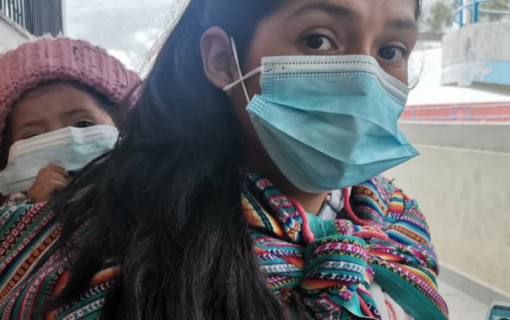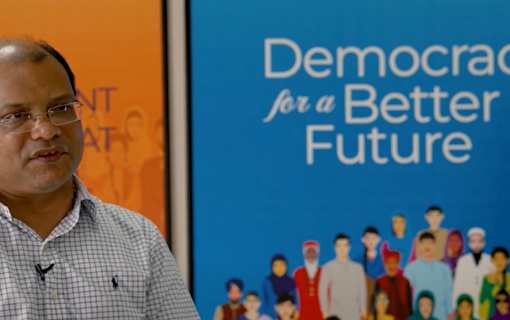Voter Information and Education Project: Republic of the Philippines
Introduction:
In early January 1997, the IFES Election Modernization and Voter Education interim report was delivered to COMELEC Commissioners and Executive Director for review and consideration. They were then briefed on its content, rationale, recommendations, and conclusions. Developed as both an internal and external resource, the report was intended to help COMELEC understand the realities of current citizen concerns and needs so that it might develop a more targeted approach to future voter education and information programs. Even though the IFES report contains some critical information, COMELEC expressed its appreciation for the report's constructive and instructive content. The Commission believes it can now better develop and target information and education programs designed to motivate and inform voters in the short term and develop more positive attitudes in the long term.
The Commissioners and Executive Director were especially interested in the analysis of the focus groups and saw the benefit of building a voter information and education program based on the focus groups findings and conclusions. They were also appreciative of the fact that IFES gave them undiluted facts and information from the focus groups without trying to "sugar coat them in any way." They stated that the IFES findings confirmed many issues for them and provided conclusions and recommendations which might help them justify appropriate funding for future modernization information and education programs.
The Voter Information section of the interim report points out the need for comprehensive programs presented in a variety of ways and offers formats which have not yet been widely used by COMELEC. The report points out two factors critical to the ultimate success of a voter information program: proper timing of the development and delivery of the programs and necessary funding.
Overall, COMELEC agreed with the outlined objectives, goals, targets and evaluation criteria of the programs as presented in the interim report. Their main concern focuses on how they can meet these goals and objectives given the many problems and issues they are currently facing. Most Commissioners and the Executive Director support the development and delivery of a comprehensive program as outlined in the interim report because they believe the lack of voter information in 1995 created suspicions about COMELEC and reduced voter confidence in both the election process and their agency.
The plaguing questions are not so much whether to support the programs in the report but how to finance, develop, and deliver the programs in a timely fashion - especially given all of the projected election preparations, new laws, development of regulations and general registration work scheduled for the current election cycle (March 1997 to May 1998). There will be many new voting procedures implemented in the 1998 election which will require regulations being written, procedures developed, and additional training programs for election day workers. All of the developmental work, planning, and preparation must be done in a timely manner so that successful and timely implementation will be assured for the May 1998 elections.
Many of the suggested programs in the interim report are new to COMELEC and there seems to be some apprehension as to whether or not the staff has the time or expertise to develop them. Media-based programs have never been developed internally. In 1992 they were developed and produced by a public relations company. In 1995, newspaper ads were actually cut and pasted from the 1992 ads. In-house work has consisted mostly of developing posters and primers and oversight of externally developed programs.
Currently there is a voter education curriculum bill pending in Congress which, if passed, will require COMELEC to work with the Board of Education to develop long term in-school education programs. This will require considerable staff time, which will be at a premium during the next year. A school-based educational curriculum was suggested in the interim report as a source and resource for developing positive attitudes toward the election system, reducing fraud, and providing long term attitude changes in the voting public. COMELEC supports the idea of this program and believes it would be especially effective in the rural areas.
Assuming the Modernization Bill (voting equipment) passes, COMELEC will be involved in writing requests for proposals; reviewing vendor proposals; contract negotiations; production and training issues; locating, recruiting, and training appropriate technical and election personnel; and planning new logistical and implementation programs for the May 1998 election. In reality COMELEC will face extraordinary challenges in handling all of these requirements in addition to implementing innovative voter information and education programs. For COMELEC the concerns are how to best meet the mandates and projected needs during the next year.
Read the Full Report.









